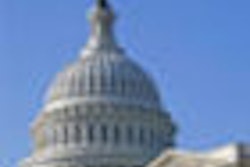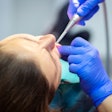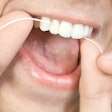
As the bumpy, tortuous trip toward an overhaul of the U.S. healthcare system approaches its end, dental organizations are making their last grasp for the steering wheel.
President Barack Obama has asked Congress to pass a healthcare overhaul bill he can sign before his State of the Union speech, scheduled for January 27. But with Republican Scott Brown's election to the Senate in Massachusetts on Tuesday, the already difficult negotiations could get even harder, causing significant repercussions for oral health legislation.
The Senate and House of Representatives had begun efforts to reconcile the bills they have passed separately, both of which would leave a lasting impact on dentistry. That process changes dramatically with Brown's victory over Democrat Martha Coakley in the Massachusetts special election for the Senate seat vacated by the death of Sen. Ted Kennedy. That's because all Senate independents and Democrats had to vote in favor of the bill that passed in that house to obtain the 60 votes needed to close debate.
The Democrats now face four options: pass the bill before the Massachusetts election can be certified, give up on these bills, use the reconciliation process to pass major pieces, or ask the House to pass the Senate's bill.
Most pundits think the Democrats won't rush a law through before Brown takes his seat because that could trigger an angry backlash from voters who feel the process has been short-circuited.
House Speaker Nancy Pelosi (D-CA), has already rejected the idea of giving up. But what if she can't muster enough Democratic votes to pass a major overhaul? Some pieces of the oral health legislation could survive, according to Burton Edelstein, D.D.S., M.P.H, a former congressional aide who founded and directs the Children's Dental Health Project (CDHP).
"Frequently the provisions that are not enacted but make it as far as the full House or Senate reappear in subsequent legislation," he said.
Rightful roles
Democrats and Republicans kept working together in the Senate Finance Committee after the Democratic majority in the other committees of both houses had given up on reaching a compromise, and during that time they created many of the oral health provisions that ended up in the final Senate bill. So even though only one Republican on the committee -- Olympia Snowe (R-ME) -- voted in favor of that committee's bill, the dental provisions contained in it can still make some claim to bipartisan favor.
"The depth and breadth of dental provisions that are now in the bills establish clarity on what the federal government believes are its rightful roles in oral health," said Dr. Edelstein.
If the Senate Democrats decide to use the reconciliation process to pass healthcare legislation, only a simple majority is needed. The catch is that only measures affecting the national budget can be included in the reconciliation bill. It's not clear which of the oral health pieces might fit within that restriction. The least controversial are those having to do with collecting data on oral health and providing more oral health education, said Dr. Edelstein. But the ones more linked to the budget have to do with expanding dental benefits in insurance programs.
Another option for Democrats is for the House to pass the Senate's bill without changing it. That may prove tough because the vote in the House was close as well, with some members objecting strongly to parts of the Senate bill.
As these maneuvers consume Congress' attention, advocates for oral health haven't completely given up hope of influencing the final outcome, particularly where the two bills differ.
Here's an overview of what's at stake.
Insurance required
The two bills share an overall approach to expanding coverage. Both would require almost everyone to have health insurance. Both would prohibit insurance companies from denying coverage based on pre-existing conditions. And both would provide subsidies to people who can't afford their own plans.
The bills both set up exchanges through which people having trouble getting healthcare insurance could buy it. The details of the exchanges differ significantly, but the key point for oral health is that both would require all insurance offered through these exchanges to include dental benefits for children. This requirement would extend to all new insurance plans offered outside the exchanges starting in 2013 (in the House version) or 2014 (in the Senate version).
The House version prohibits co-payments and other costs to the beneficiaries for preventive care.
Oral health experts
The House bill also stipulates that oral health experts would be included on the panel determining what benefits must be offered (first through the exchanges and then to all new health plans). In news alerts, the CDHP has emphasized this point, urging concerned citizens to lobby for a similar provision in the Senate version.
Standalone dental
The Senate version also allows "standalone" dental insurance in the exchanges, while the House version would require the same companies offering the medical benefits to provide the dental benefits (although they could subcontract with other companies to provide dental benefits). Delta, the ADA, the Academy of General Dentistry (AGD), and other dental groups are pushing for the House version.
Medicaid, CHIP, and Medicare
Both bills envision an expansion of Medicaid to cover families with higher incomes -- up to 150% of the federal poverty level in the House bill and 133% in the Senate bill. Neither one would increase the amount of money that dental professionals would be paid for treating Medicaid patients, though they both envision increased scrutiny of reimbursements.
Both bills leave Medicaid dental benefits for adults as an option that states can include or exclude -- as many have when their revenues drop. The House bill requires the government to study the effectiveness of extending Medicaid dental benefits to adults in the future. Adult Medicaid benefits and increased reimbursement for dentists have been among the ADA's highest priorities.
The House bill would move children now covered by the Children's Health Insurance Program (CHIP, a program of subsidized insurance for kids whose families can't afford insurance or qualify for Medicaid), to insurance programs in the public exchange starting in 2014. The Senate bill extends funding for CHIP at least to 2015.
While few dentists get reimbursed directly by Medicare, some seniors pay for dental benefits through private insurance funded by Medicare Advantage. Both bills would reduce payments to this program, possibly reducing these beneficiaries' abilities to pay for dental care.
Insurance tax
Dental groups have opposed a tax in the Senate bill on expensive insurance plans. As currently written, the tax would include dental benefits, but under the terms of a tentative deal worked out with opponents, dental and vision would be excluded after 2014.
Antitrust
The House bill would subject health and malpractice insurance companies to federal antitrust laws, repealing the McCarran-Ferguson Act exemption. That's been a goal of the ADA and AGD for a long time. The Senate bill has no such provision.
Government-run insurance
The House bill sets up a public insurance plan run by the federal government to compete with private insurers. The Senate bill sets up a private nonprofit insurance plan to compete with private insurance companies. States can opt out of such a plan. The AGD and dental insurance groups have opposed any public option, while the ADA has listed limitations it would like imposed on a government plan.
Training programs
Both bills provide money to train dental professionals and plan to look into healthcare workforce issues. The House version sets up a new dental cluster that includes dental hygiene. The AGD wants to keep hygiene out of it. Both offer financial support to dental professionals working with underserved populations. Loan repayment programs under the National Health Service Corps under both bills are increased and enhanced.
Prevention
Both bills set up new task forces to coordinate national efforts to prevent illness, but the Senate bill is much more specific about oral health. It would fund a five-year campaign including sealants, fluoridation, and education. The Senate bill also would collect data on oral disease prevention.
Midlevel providers
The Senate bill would fund 15 demonstration projects to study the use of midlevel dental providers such as community dental health coordinators, advance dental hygienists, and dental health aide therapists. The ADA wants to prevent these practitioners from "surgical procedures," while the AGD would eliminate the program altogether.
The Senate bill would also allow dental health aide therapists now operating in Alaska to work in other states if authorized by state law and requested by an American Indian organization. The House bill would restrict the therapists to Alaska. This provision has split dental organizations.
Tort reform
The two bills provide state grants to investigate alternatives to the current malpractice laws. The ADA and AGD have pushed for actual nationwide reforms, such as limits on compensation.
Health savings accounts
The two bills would set new limits on health savings accounts and on flexible spending accounts, both of which can be used to pay for dental services. For example, they would both set a limit of $2,500 on the amount that employees can contribute to flexible spending arrangements. The ADA has opposed such limitations.
Small business exemption
Businesses are required to provide healthcare insurance or pay a penalty, but they are exempted in the Senate bill if they have fewer than 50 employees or in the House bill if they have less than $500,000 in payroll. In both bills, businesses with fewer than 25 employees earning average wages of less than $40,000 would get a tax credit up to 50% of the premium costs on a sliding scale.
Emergency responders
The House bill includes dentists as emergency health responders, while the Senate bill does not. The AGD and ADA would like to see this provision included in the final law.
For the ADA's point-by-point comparison, click here. For the AGD's wish list, click here. To read the CDHP's analysis, click here.



















